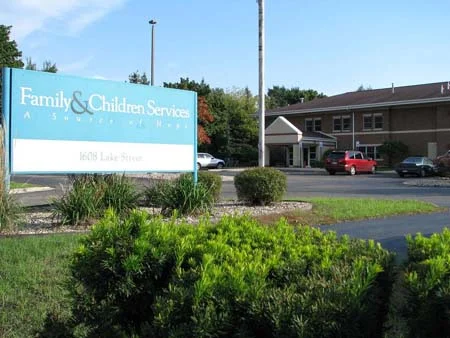Do You Live in the Next Ferguson
June 2015 l By David Sharp & Senemeht Olauntuji
If one were to take a closer look at Ferguson, MO you would find that tensions were simmering long before the shooting of unarmed teenager, Michael Brown. In recent months, the city has been put on the map for the shooting of Michael Brown, however, other issues that exist in Ferguson have also permeated to the surface. The issues in Ferguson are systemic and represent a wider and more complex dichotomy that exists today. Where there are racial tensions, you often find stark economic divides as well. For the residents of Ferguson race, politics, and economics are intertwined, and often intersect in ways that are uncomfortable for wider society to digest. Although predominantly African American, only 3 of the town’s 53 police officers are black. Both the City Council and local school board are comprised of seven members, with only one African American representative, respectively. Despite a city that is 67% African American and a student body that is 78% African American, the lack of representation continues to be a stark and glaring reality for its residents.
Many of the possible factors that attribute to wealth accumulation including, intergenerational inheritance, lower unemployment, higher household incomes, longer years of homeownership, and college education are lacking. In fact, Ferguson is a perfect example of what happens when a community is not afforded these opportunities. In 2012 the homeownership rate was almost 10% lower than the statewide average. Schools in Ferguson continue to be under-funded and are often segregated by race and income. The school in which Michael Brown’s own educational roots were planted recently lost its accreditation and is now operated by the Missouri Department of Education. The jobs that often provided higher household incomes and allowed African Americans to enter into the middle class no longer exist. Many residents of Ferguson have also fallen prey to predatory and discriminatory financial practices, furthering the income gulf that exists. In a recent Washington Post Op-ed Carol Anderson, associate professor of African American studies and history at Emory University very poignantly illustrates the siege that African Americans continue to be held under. Anderson provides examples of targeted efforts to redraw precincts to dilute African American voting strength and slashing government payrolls that have long served as sources of black employment. She further highlights the foreclosure crisis that hit black Americans harder than any other group and stripped half the amassed collective wealth. It is quite evident that the issues that plague Ferguson and other communities of color are indicative of a situation that is severely imbalanced.
Food benefits gone in a SNAP: The issue of food deserts and insecurity
December 8, 2013 | By Senemeht Olatunji, Urban Advisors
On November 1, 2013 some 47 million Americans faced further food insecurity as the Supplemental Nutrition Assistance Program (SNAP) saw a dramatic decrease in allotted benefits. With a 5.5% decrease in monthly benefits, the average family of four who relies on SNAP benefits would see a monthly reduction of $36, dropping benefits from $668 to $632. The temporary 14% increase enacted in the 2009 American Recovery and Reinvestment Act has since ended with total costs reduced by $5 billion this year. To further add insult to injury, both the House and the Senate passed different versions of a farm bill that propose measures that will further decrease benefits in the program. The proposed Senate bill will seek cuts of $4 billion over 10 years, while the House version seeks $40 billion in cuts.
With the hunger crisis still an ever-growing issue and the federal government decreasing efforts to alleviate hunger in US households, the need for innovation and increased philanthropic efforts is ever-present. Across the US, the response to eliminating hunger and addressing food deserts spans from the White House with First Lady Michelle Obama’s initiative to reduce childhood obesity, to major supermarket chains expanding to areas considered to be food deserts and increasing access to fresh food. Many communities are also addressing the issue of lack of fresh food access by developing solutions that are innovative and collaborative in nature. Recently, the Huffington Post highlighted a small business located in Seattle, WA that repurposes shipping containers, creating mini-grocery stores where SNAP benefits are welcomed. Similarly profiled, were areas of Texas that are seeing transformative solutions; vacant lots in food deserts are developed into community gardens where fresh fruits and vegetables are in abundance. Mobile markets highlighted in Ashville, NC are slated to provide access to fresh produce and prepared foods, while Colorado grocers have access to capital that assist stores in increasing the amount of healthy food provided.
Although communities are moving forward to creatively and innovatively address food deserts, the continual decrease of federal spending to alleviate hunger demonstrates the need for a concerted and collaborative effort that addresses food insecurity. Various entities such as food co-ops, economic and workforce development, healthcare care providers and education facilities can align their missions and create fast solutions to an ever- growing trend. Partnerships and collaborative efforts can create innovative solutions that bring an end to food insecurity in a nation where 47 million Americans lack equal access to fresh food. As we move further and further away from government assistance to help those who live in and within areas considered to be food deserts, the world of philanthropy has a responsibility to better align adequate funding to innovative ideas, turning food deserts into food oases.
Fresh solutions to the problem of food access
April 29, 2013 | By Senemeht Olatunji, Urban Advisors
In 2010, Urban Advisors performed due-dligence evaluated the California FreshWorks fund (CAFWF), a unique $230 million consortium that joined the philanthropic, government, and private sector in an opportunity to engage in the fresh food financing space. The participants of this investment fund included, NCB Capitol Impact, The California Endowment, Policy Link, The Community Redevelopment Agency of Los Angeles, Unified Grocers, the Kellogg Foundation, and other entities.
Established to address the lack of fresh food in underserved communities throughout the state of California, the Fund’s mission works to increase grocery stores and other retail and distributive forms of fresh food. Utilizing over 7 years of experience, Urban Advisors overall due diligence concluded that the project has the potential for positive financial and social impact within low-income communities, providing healthy food, increased employment, stimulating the local economy, and removing blight. Most importantly, the project has the potential to become a sustainable and impactful healthy food project that will both directly and indirectly impact vulnerable families and children.
Many low-income communities of color and low-income rural areas are most affected by limited access to healthy food. Studies have shown that there are fewer supermarkets and other retail outlets that sell affordable, nutritious food in predominantly African American and Latino neighborhoods than in predominantly white neighborhoods. One national study found that low-income zip codes have 25% fewer chain supermarkets than middle-income zip codes. Compared to predominantly white zip codes, majority African American zip codes have about 50% as many supermarkets and majority Latino zip codes have approximately 33% as many. In its commitment to key mission investment areas of health, economic impact and development, and job and wealth creation, Urban Advisors was engaged by the W.K. Kellogg Foundation to evaluate the business merits and deal structure of a $1.5 million California FreshWorks Fund Program Related Investment (PRI) request. About the Fund, founding partner, David Sharp states, “ The California FreshWorks Fund provides a tremendous opportunity to scale small local grocery store chains, capitalize local grocery/convenience stores in innovative ways that will help to bring fresh fruits and vegetables to underserved and dis-advantaged communities.
With the $230 million in aggregate funding from socially- oriented funders, the Fund will provide a combination of loan and grant financing to eligible fresh food retailers and/or distributors to overcome the higher costs and initial barriers to entry in many underserved urban and rural areas. CAFWF will also support renovation and expansion of existing stores as well as sustainable investments in fresh food retailing and distribution.
Expanding social benefits in Michigan
April 13, 2013 | By Senemeht Olatunji, Urban Advisors
In it's 7 years of operation Urban Advisors knows of the social ills that plague low- income communities all to well. Record unemployment in Michigan, food deserts in California, education and wage disparities in Chicago only scratch the surface of the issues that Urban Advisors has vested its interests in combatting. In this commitment to measuring social impact and identifying capital for scalable and innovative models and programs, Urban Advisors recently tackled evaluating the Family and Children’s Services (FCS) agency in Michigan. Urban Advisors’ social innovation approach was used to evaluate the impact a Program Related Investment (PRI) would have on the sustainability and potential for innovation at the agency. FCS provides multiple child welfare and behavioral healthcare services for low- income children, families, and adults.
In its assessment, Urban Advisors measured social impact based on FCS’ volume and quality of services, diversification of services, staff experience and commitment to quality outcomes, and impact on households of its clients. FCS is positioned to pilot new programs not currently offered by any of its peers in the state of Michigan and has achieved a high level of service quality and program outcomes compared nationally. FCS’s social impacts are largely based on the myriad of supportive services achieved by its 30 programs and services including, mental health counseling, intensive case management and linkage to community resources, Handle with Care direct assistance, and high volume of foster care placement for at risk youth.
In a further assessment of FCS, Urban Advisors also highlighted the indirect financial cost savings and emotional/ social impacts of the agency that may not be apparent to funders, partners, or evaluators that do not perform child welfare service delivery. FCS’s ability to achieve positive therapeutic outcomes can result in the social benefits of fewer emergency medical facility visits, fewer psychiatric hospitalizations per client, and decreased financial and emotional burdens on client families and households. The Urban Advisors team anticipates the resources freed up by the PRI may give FCS the opportunity to invest more resources into its innovative pilot programs and secure state funding for them. Ultimately, FCS is poised to continue to positively impact the children and families it serves.




